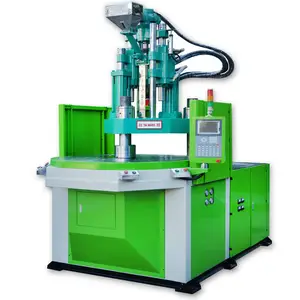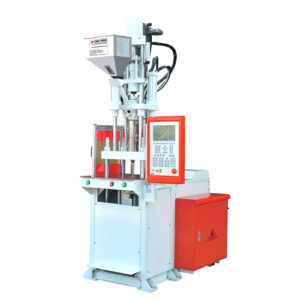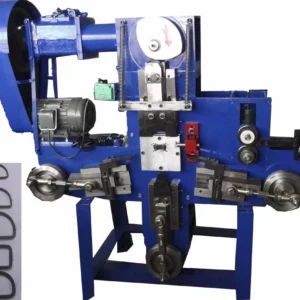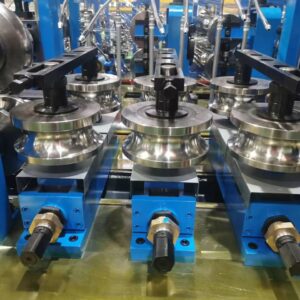Description
| Specification | Details |
|---|---|
| Machine Type | Automatic Face Mask Production Machine |
| Capacity | Up to 150 masks per minute |
| Mask Types | 3-ply, N95, KN95, Surgical, etc. |
| Material Compatibility | Non-woven fabric, Melt-blown fabric, Nose wire, Earloops |
| Fold Type | Folded or Flat |
| Ultrasonic Welding | Yes |
| Cutting System | Rotary or die-cutting |
| Control System | PLC with Touchscreen Interface |
| Power Requirements | 3-phase, 380V, 50Hz |
| Machine Dimensions | Varies based on the model |
| Weight | Varies based on the model |
| Safety Features | Emergency Stop, Safety Guards, etc. |
| Warranty | Typically 1-2 years |
Introduction to Face Mask Machines
The ubiquitous nature of masks during the ongoing COVID-19 pandemic has made them a symbol of protection and prevention. To meet this extraordinary demand, traditional production methods globally have been overwhelmed. Consequently, automated face mask machines emerged as an innovation that will be used in making many masks at once, ensuring high-quality masks are manufactured efficiently. This article expounds on different types of face mask machines, their making process, operating processes as well as their functions and benefits in ensuring public health.
Types of Face Mask Machines
Face mask machines are designed to suit specific production needs and demands hence they come in different types. Some examples include:
Flat Mask Machines: They manufacture flat rectangularly shaped masks covering one’s mouth as well as nose regions which are mostly used in medical fields and for everyday use.
Folded Mask Machines: Folded mask machines can produce 3D-shaped masks that fit better on the face than others because they conform more closely to the wearer’s face shape. These masks offer more comfort and protection and are therefore suitable for medical use or other industries.
N95 Respirator Machines: N95 respirators are specialized to filter airborne particles including viruses and bacteria; so do n95 mask machines with advanced features for precise manufacturing practices according to regulatory policies.
Surgical Mask Machines: Surgical masks are loose-fitting disposable devices that protect wearers from droplets, splashes, and sprays; thus surgical machine manufacturing is optimized for huge volumes needed by healthcare facilities and medical supply chains.
Making Process
Manufacturing face masks through automated machinery requires a few stages which require precision due to its automation. The following steps represent a typical case:
Material Feeding: Raw materials like non-woven fabric, melt-blown fabric, nose clips, etc., should be fed into the machine before starting it up.
Layer Formation: Different layers are stacked together based on the type of mask being manufactured. To attain the desired level of filtration and protection, different layers are brought together.
Ultrasonic Welding: This is a technology that utilizes ultrasound to create invisible seams between the layers. By doing so, it ensures the masks have strong and durable links through the melting of material through high-frequency vibrations which normally produce heat therefore acting effectively in bonding them.
Cutting and Shaping: After fusing the layers, these shapes are cut and molded into their final forms by the machine. In turn, it leads to uniformity in size as well as shape.
Ear Loop or Head Strap Attachment: Ear loops or head straps are attached depending on the design of a given mask to allow for a secure fit onto one’s face.
Quality Inspection: Automated systems check every mask for quality assurance purposes. Any form of defectiveness or irregularities may be apparent during this inspection.
Packaging: Once they are completed, packaging them becomes necessary as a last step before they can be distributed further on. These automated packaging devices ensure hygienic handling and efficiency.
Operating Process of Face Mask Machines
To achieve its best performance output, operating a face mask machine requires specialization knowledge and skills towards optimization. Usually, the following are involved in an operating process:
Setup and Calibration: The machine is set up with specific mask design requirements like materials at hand before production starts.
Material Loading: Operators supply raw materials continually throughout production runs into machines.
Machine Start-Up: As soon as materials have been loaded into it; hence, the machine starts working thus bringing forth masks in large quantities. For example, if anything goes wrong or some parts do not function properly operators will fix it right away by closely watching over its operation.
Quality Control
Quality control means are implemented throughout the production run to keep the intactness and consistency of the masks. The makers visually check them plus periodic checks to confirm conformity with standards.
Maintenance and Troubleshooting
The machine requires regular maintenance for it to continue running smoothly without downtime. It is routine business for operators to do checks, clean, and service the machine as required. In case of any malfunctions or errors, procedures are followed in troubleshooting to identify the issue and solve it in time.
End of Run Procedures
When the production run comes to an end, the machine is turned off while any remaining materials are removed from it. Before being packed and dispatched, there is a final inspection done on them by operators so that they can be assured that every mask that is manufactured meets the quality requirements.
Role and Advantages
Automated face mask machines have been instrumental in addressing COVID-19 pandemic challenges beyond. They include:
Mass Production
Face mask machines have enabled mass production of masks which meet ever-growing demands from health facilities, essential workers, and the general public.
Efficiency and Speed
Compared to manual methods, automated machines work precisely and efficiently thus reducing production time immensely. This enables fast scaling up of production capacity during emergencies.
Consistency and Quality
Face mask machines guarantee that every mask will come out equally well by automating their manufacturing process. This kind of reliability is necessary for meeting regulatory requirements as well as ensuring user safety.
Customization
Present-day face mask machines possess features such as versatility and customizability hence capable of producing different types, sizes, and designs of masks according to application needs or preferences.
Resource Optimization
Automated manufacturing leads to the least wastage concerning material consumption while at the same time utilizing resources effectively hence aiding sustainable cost-effective practices in the industry.
Worker Safety
By minimizing human contact with raw materials and the need for manual labor, automated machines are used to protect workers from potential health risks and hazards associated with them.
Scalability
Manufacturers can always adjust the production capacity of face mask machines as per dynamic market conditions and fluctuating demand.
Global impact
There is a worldwide impact of automated face mask production processes that aid in curbing infectious disease spread and maintaining public safety.
Most Commonly Asked Questions
Are automated face mask machines affordable to purchase and maintain?
Although the initial costs may be high, the long-term benefits in terms of efficiency, productivity, and quality often outweigh these upfront expenses. Operating costs differ depending on factors like power consumption, labor requirements as well as maintenance among others.
What are common materials used for making face masks?
Typical materials include nonwoven fabric, melt-blown fabric as well as nose clips. They are chosen owing to their filtration attributes plus comfort features including breathability.
How do face mask machines guarantee quality control during production?
Quality control mechanism involves using sensors, cameras, or software algorithms to monitor different parameters such as thickness of material, tension, or integrity of seam by automated systems. Whenever specified criteria are broken due to these parameters there can be an alert that automatically adjusts or shuts down to ensure quality control.
Can face mask machines put any personalized designs or branding on the masks they produce?
Many contemporary face mask machines offer opportunities for customization where manufacturers may include in these products their logos, patterns, or colors. This becomes very critical especially when it comes to branding or promotional purposes.
Do automated facemask machines have environmental concerns?
Automated machines can help minimize the impact on the environment through efficient utilization of resources and waste reduction, despite their generation during the production process of face masks. This is heightened further when some manufacturers opt for eco-friendly materials and recycling programs to address environmental issues.
What precautions should operators take while working with face mask machines?
To minimize any accidents or injuries, particularly machine-related accidents, all operators must be trained in both safety protocols and machine operations. This implies that they should observe personal protective equipment (PPE) regulations, read equipment manuals as well as follow guidelines and procedures for operating them.
Are there face mask machines that make specialized masks like those used in high-risk environments or medical procedures?
Yes, certain kinds of facial mask makers are manufactured to meet specific regulatory standards as well as performance requirements designed for use within high-risk areas such as healthcare settings and cleanrooms. These machines are subjected to rigorous tests and certifications so that they can comply with the set standards.
How do face mask machines contribute to public health initiatives and disease prevention?
The large-scale production facilitated by automated systems is critical for ensuring the availability of high-quality masks to everyone who needs one. It also assists in reducing transmission rates of different diseases thus safeguarding vulnerable populations; hence creating awareness about public health.
What technological advancements are shaping the future of face mask production?
Technological developments including robotic systems, additive manufacturing like 3D printing, and artificial intelligence are key drivers for innovation in making masks. These technologies enhance customization capabilities while automating processes leading to improved quality control which eventually results in more sustainable manufacturing practices.
How can manufacturers optimize the performance of face mask machines?
Regular maintenance activities done by specialists are a vital means through which manufacturers can enhance machine performance. In addition, software updates can also boost how these devices operate continually while seeking ways through continuous improvement measures to optimize performances under diverse circumstances. Data analytics as well as predictive maintenance techniques enable proactive identification of possible challenges while optimizing production for maximum efficiency and reliability.





